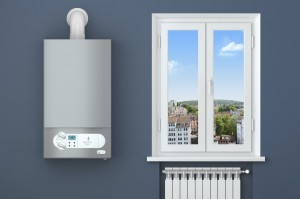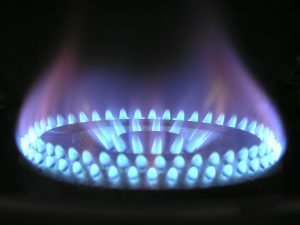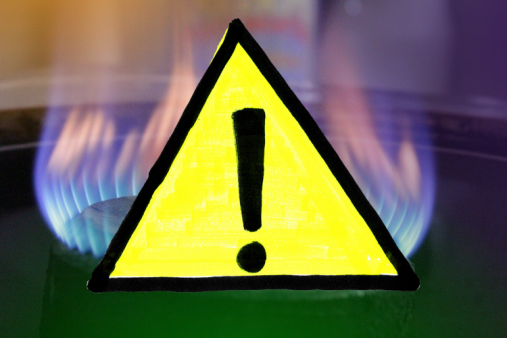 Gas Safe Plumbers Qualifications - Why are they so important?
Gas Safe Plumbers Qualifications - Why are they so important?
Gas is one of the most dangerous things we have in the house. When used to run properly maintained and well repaired boilers and other appliances, gas is an efficient and cheap way to keep our homes warm. If something goes wrong with gas appliances or boilers though, the consequences can be devastating. Shoddy workmanship on gas fires, boilers or other appliances can cause fires, explosions or carbon monoxide poisoning, all of which can be fatal. In 2008-09 there were 15 reported deaths due to carbon monoxide poisoning and 18 deaths because of dangerous gas workmanship. It is estimated though that there are 250,000 illegal gas jobs done every year in the UK, mostly by householders trying to save a bit of cash by taking a DIY approach, or by one of the estimated 7,500 people working illegally as gas fitters in the UK. The fatality statistics speak for themselves – it’s simply not worth the risk using an unregistered gas fitter or engineer. But how do you make sure the person you have approached to fit a new boiler or replace your gas pipes has undergone the correct training with gas safe plumbers qualifications and knows what they are doing?
CORGI Registration – A Thing of the Past
Although the certification scheme run by CORGI (Council for Registered Gas Installers) came to an end in 2009, the name “Corgi” is still known by many homeowners. Many of the plumbers and heating engineers who were registered under the old CORGI scheme transferred their membership to the new register but some did not. CORGI accreditation cards are no longer valid and should not be accepted if someone tries to use one to prove their competence at gas fitting. The new scheme is called Gas Safe, and took over from the old scheme over five years ago.
Check the Gas Safe Register
 After the abolition of the CORGI scheme, the Gas Safe scheme was set up to cover the whole of the UK, the Isle of Man and Guernsey. Anyone who works with gas appliances and boilers has to be registered with Gas Safe to legally carry out work with gas in your home. The first check you should make is on the online Gas Safe register, and this is very easy to do. When searching the register you have a couple of options; you can enter your postcode on the home page to see a list of companies and individuals with gas safe membership, or you can search by name if you already have a company or individual gas engineer in mind for the job. The website contains a wealth of other information which you should check, including what types of work each individual engineer is qualified to do, and clicking on a name will show you pictures of the engineers registered with Gas Safe. Check that the person who is telling you that they are Gas Safe registered is actually listed on the website, and just as importantly, check that they match the picture held for them online.
After the abolition of the CORGI scheme, the Gas Safe scheme was set up to cover the whole of the UK, the Isle of Man and Guernsey. Anyone who works with gas appliances and boilers has to be registered with Gas Safe to legally carry out work with gas in your home. The first check you should make is on the online Gas Safe register, and this is very easy to do. When searching the register you have a couple of options; you can enter your postcode on the home page to see a list of companies and individuals with gas safe membership, or you can search by name if you already have a company or individual gas engineer in mind for the job. The website contains a wealth of other information which you should check, including what types of work each individual engineer is qualified to do, and clicking on a name will show you pictures of the engineers registered with Gas Safe. Check that the person who is telling you that they are Gas Safe registered is actually listed on the website, and just as importantly, check that they match the picture held for them online.
Getting Onto the Register
Getting onto the Gas Safe register isn’t just a matter of signing a few forms saying you know what you are doing and sending a photograph off to Gas Safe. For each of the categories for which an engineer wishes to be listed on the Gas Safe register, they have to send in certificates proving their competence in that area. The registration fee is over £350 a year currently, and with the requirement for ongoing training and for engineers to refresh and update their skills, this puts off many of the poorly qualified and incompetent engineers. Any engineer signing up to Gas Safe has to sign up to 10 pages of rules and regulations which they have to abide by, and if they are found to be breaking the laws, they are removed from the register. Getting onto the register is not easy, and staying on it requires good quality and competent work.
Gas Safe Plumbers Qualifications And Checking Registration
Before you agree to go ahead with any sort of work involving gas in your home, do your homework and make sure that the company is listed on the register. You really shouldn’t have to ask them to prove this; companies which are listed as Gas Safe will usually either volunteer this information up front, or have the Gas Safe logo on their official quotes or paperwork. Always check up on the information you are being given online or by calling Gas Safe; it is not unknown for unscrupulous companies to use logos without permission or to tell you that they’re on the register when they’re not. Also check the photographs on the website against the people who are turning up on your doorstep and showing you a card. The overwhelming majority of heating engineers are honest and fair, but the consequences of accepting someone’s word for it that they are who they say they are, and that they are registered when they are not can be catastrophic. Gas Safe takes matters of safety around the gas engineering profession seriously, so if you do come across someone who is working illegally, report them.
Keep All of Your Paperwork
Any good heating engineer will give you a written quote or estimate before they start work, and a receipt once the job is complete. Keep this in a safe place in case you need to refer to it in the future. If you are a landlord, you are legally obliged to make sure that all gas appliances in your rental properties are serviced and inspected every year, but even for homeowners there are benefits to making sure that your home is checked over regularly and that everything is working as it should be. As well as helping to keep you and your family safe, having gas appliances maintained regularly by a Gas Safe engineer should help save money off your heating bill too as it will ensure that they are running at maximum efficiency. It's important that you ensure that you hire people with gas safe plumbers qualifications to undertake any kind of gas related work on your home.








